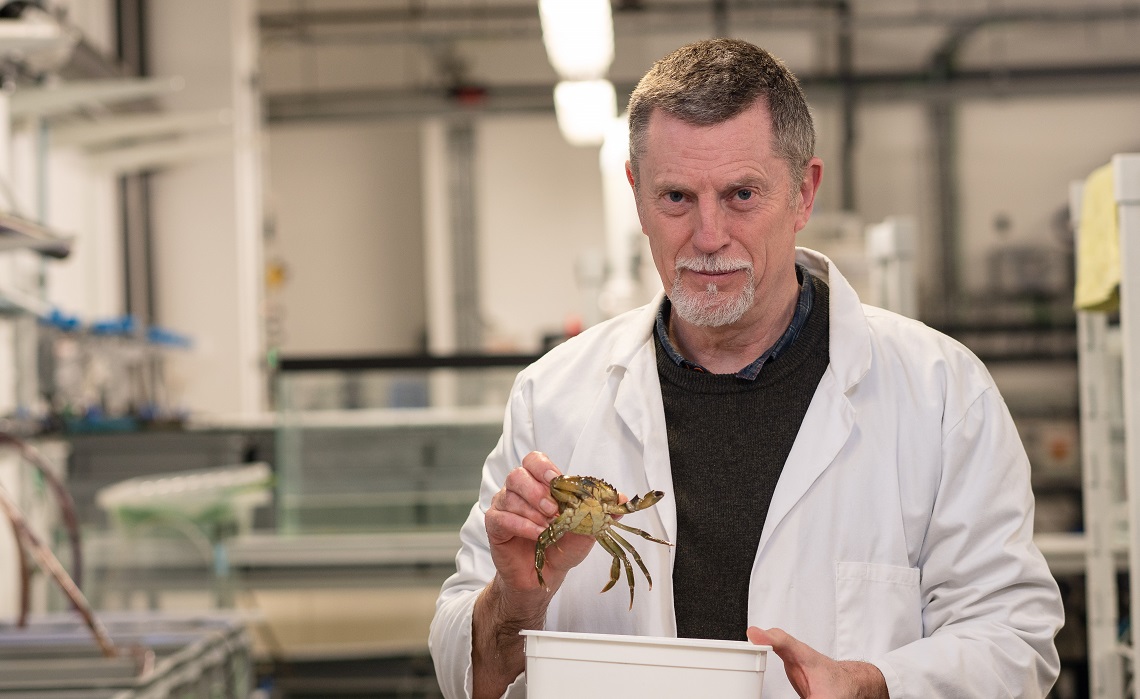Fisheries expert warns of tuna overfishing in the Indian Ocean

Professor Paul Shaw from Aberystwyth University’s Institute of Biological, Environmental and Rural Sciences (IBERS) uses genetic methods to study fish populations and improve the sustainability of fisheries across the world.
24 October 2019
A marine biologist from Aberystwyth University is calling for a change in international fisheries policy to protect stocks of yellowfin tuna in the Indian Ocean.
Professor Paul Shaw from the University’s Institute of Biological, Environmental and Rural Sciences (IBERS) has been studying the genetics of yellowfin tuna off the cape of South Africa, where the Indian Ocean meets the Atlantic Ocean.
His research shows that the geopolitical boundary, used to define the outer limits of the Indian and Atlantic Ocean stock assessment areas, means that tuna stocks are not being accurately measured.
As a result, he says, the problem of overfishing of yellowfin tuna in the Indian Ocean may be worse than previously thought.
Professor Shaw is presenting his findings to a meeting of officials from the Indian Ocean Tuna Commission in San Sebastián, Northern Spain, on Thursday 24 October 2019.
“We have been working with colleagues in South Africa to map the genetics and the migration habits of yellowfin tuna in the western Indian Ocean,” explained Professor Shaw.
“Tropical populations of yellowfin tuna are known to migrate at certain times to the waters around South Africa, including an area of the Atlantic Ocean between Cape Point and the Namibian coast.
“Our genetics research shows that these fish originate from the Indian Ocean tuna population, but at present if they are caught in this area of the southeast Atlantic, they are counted as part of the Atlantic Ocean stock.
“This means the Indian Ocean tuna population is not being counted properly and that current quotas set for the sustainable management of the fishery may need modifying. It also means that overfishing of yellowfin tuna in the Indian Ocean may be worse than previously thought.
“If overfishing continues, there will be fewer yellowfin tuna in the Indian Ocean and fish sizes may get smaller, which will have a negative effect on the value of this important fishery as a source of food and income for the countries of the western Indian Ocean.
At his meeting with the Indian Ocean Tuna Commission, Professor Show will recommend a change in the way the yellowfin tuna population off the Western Cape of South Africa is counted.
Professor Shaw is a leading expert on using genetic methods to understand fish populations and improve the assessment and conservation of genetic biodiversity within fisheries.
In July 2019, he received an Aberystwyth University Award for Exceptional Impact in Research in recognition of his work.



